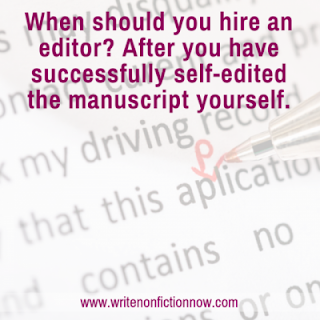Lady Gaga is on fire ... again. With her recent breakthrough performance in A Star Is Born, she is generating a lot of Oscar buzz. In the film, Gaga plays Ally alongside Bradley Cooper's Jack -- a couple whose personal relationship struggles as Ally's professional life takes off. With many publications betting she will shine during award season, Gaga is hot.
But, this isn't Gaga's first rodeo. Having launched her singing career around 2007, she has been a chart-topping role model for thousands of fans, broken records, taken home countless awards and influenced the industry.
Yes, she is an international star. But, she is also an extremely savvy businesswoman -- and I have learned everything from her when it comes to building my successful business, Archangel, which helps mission-driven entrepreneurs, and its annual conference, Archangel Summit.
It was around 2013 when I started following Gaga. I was watching the music industry - and it was in a decline. Yet, there were some artists who were killing it. Lady Gaga was one of them. While she had been around (and super successful for years), she was continuing to get stronger and stronger, despite the current landscape. At the time, I knew nothing about her, but I was intrigued by her success. What was so special about her? I began my quest to figure that out.
Secrets to Building a Successful Brand
Here is what I learned from Lady Gaga on what it takes to build a successful business - and what you can learn from her, too.
1. Get crystal clear on who you want to help.
It is so important to find the right customers for your company.
Like a lot of people, Lady Gaga is attracted to people who were like her. She has written countless times about being bullied in school and feeling like an outsider. It was these same people she went after when she decided to build her community (more on that in a bit).
For me, I needed my perfect avatar to target. I wanted to help entrepreneurs like me: those who are mission-driven and want to create an impact. To find these people, I met with anyone and everyone and started asking a million questions to get to the root issues and how I could be of help. I started to look for patterns to define my mission.
For you, focus on whom you want to help right off the bat. Take a stand. Look at your core values, what issues are important to you and your mission. This will help create cohesion and bonds among your core base. Look for those people who fit into that community. But also, just as importantly, do not try to please everyone. You can't.
2. Build a tribe.
Next, you need to find these people -- a lot of these people -- and build your tribe.
When it came to building her community and ambassadors, Lady Gaga didn't go for the traditional, top 40 pop audience. She went after the fringe -- the people who were bullied, those who didn't fit in, the outcasts -- and made them her family. And then she branded her tribe -- "Little Monsters" -- which was so important.
Every year, for our Archangel Summit, we sell out, with more than 3,000 people attending. We are able to accomplish this by building our own tribe. When I launched the entire Archangel platform, I didn't start off with a product, service, experience or event and try to sell people on that business model. Rather, I started off with a tribe and asked out how could I serve them.
By going down this path, it is much easier, in the end, for entrepreneurs to sell. After finding this passionate audience, you can figure out the most common challenges this tribe is facing and how you, as the founder, can be the most helpful.
3. Focus on being memorable.
Whatever you do, be remembered.
Usually, when artists perform, they do pretty much the same act in each city. It can be a bit, well, blah. But, Gaga customizes her shows to each specific audience -- adding in personal touches to make each performance memorable. It is very micro level. So, people throw things on stage, and she interacts with them. I have seen her do it with a Canadian flag, which she danced with; a denim jacket she put over her dress; and a touching moment, when a concertgoer named Brittany tossed up a letter. Lady Gaga stopped the set, opened the letter, learned that the girl had just come out to her parents, who didn't accept it, and asked Brittany on stage. She then sang directly to her. I am not rehashing this story for no reason; I am doing so because I remember every single moment of that concert.
In each instance, she made people feel special, like they belonged.
For us, I go crazy when it comes to the day of the Archangel Summit event. It isn't just panels and keynotes, but also Cirque du Soleil-style performances. I do this to not only keep people energized, but because I haven't seen it anywhere else.
Do the same for your own business. Do things that don't scale -- and they don't have to be such a grand level as having trapeze artists swinging through your event. For instance, you can insert personalized videos into emails, thanking someone for her purchase. Or send a special thank-you card after your service. Whatever you choose, you just need to show people you care about them.
4. Keep the momentum.
There are only so many product launches you can have, events you can hold or online courses you can unveil. Between those big milestones, keep the community going.
Lady Gaga does it by creating a special, almost secretive culture. She and her Little Monsters greet each other with the "Monster Claw" sign and use words like "monster hugs" to show affection for each other. They have their own social media platform where they can interact all year round, and a strong Facebook page where Gaga often posts.
What I have done that can work for any founder is create a strong social media group. (Some people do this with Google, others with Facebook.) In it, we highlight stories of community members and the impact they're creating, we co-create our events with the tribe (for instance, asking which speakers to have for future events) and we share strategies, to name a few ways we engage.
During the year, we also keep people engaged by continuing to educate them with webinars, email newsletters and smaller, more intimate events. These all help to continue to develop this community, so when our next major event occurs, it isn't hard to sell out.
Culled from Entrepreneur













